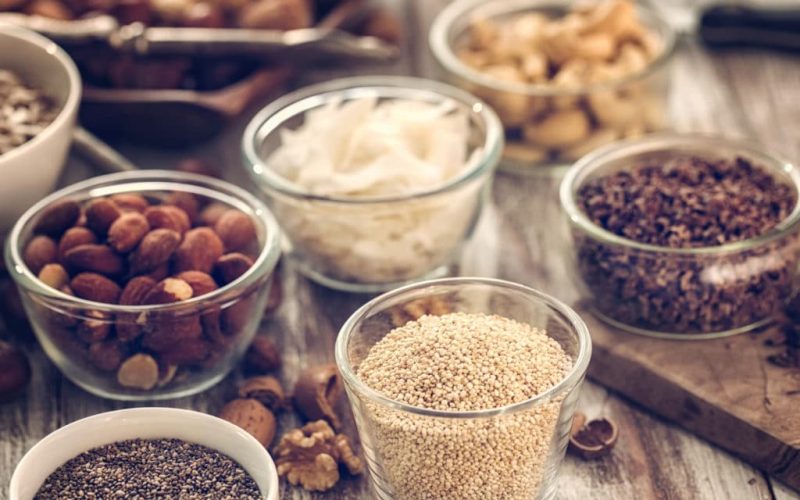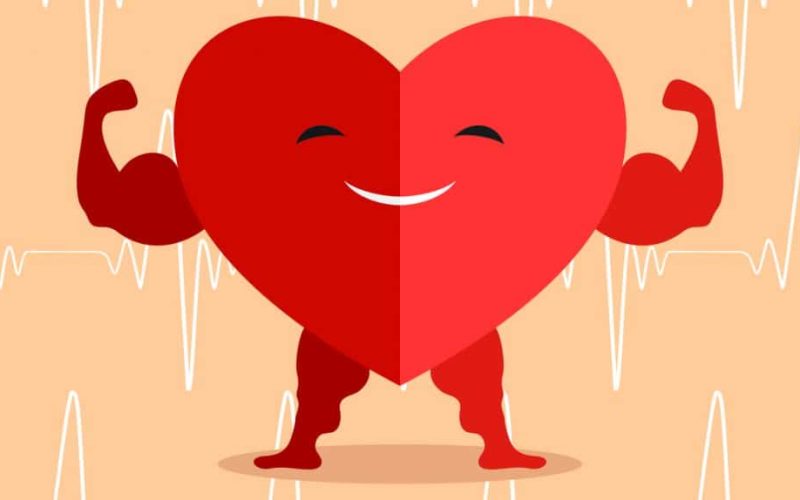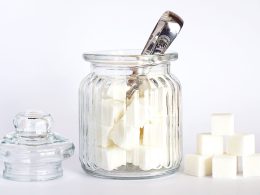After knowing the importance and functions of the heart and what will happen when the heart is not functioning properly or is diseased, we will be looking at nutritional supplements that boost health heart and supports normal functioning of the heart.
To get the full benefits of these nutrients, they have to be taken in their natural (organic) form by eating lots of fruits and vegetables. Under no circumstance should you prescribe supplements for yourself; all drugs and dietary supplements must be prescribed by a medical doctor.
Eating lots and varieties of fruits and vegetables supplies the body with many vitamins, minerals and phytonutrients without toxicity; this is why this is a more preferred method of getting vitamins and minerals.
Using supplements increases the risk of toxicity and most times they are inorganic in nature making it hard for the body to digest and assimilate.
Heart disease patients who are prescribed a dietary supplement or supplements by a medical doctor should take it but there should follow prescription to avoid over toxicity; healthy eating and regular intake of herbs can help the body overcome the by-products of these inorganic minerals and supplements.
Below are heart-friendly nutrients that support the normal functioning of the heart and protect it from diseases and infection.
Magnesium
Deficiency of this mineral leads to high blood pressure and increased risk of heart disease.
Too much calcium in the body makes the heart have muscle spasm which is equal to a heart attack but magnesium helps the body to remove out excess calcium; it is the body’s natural calcium channel blocker.
Good sources of Magnesium are whole grains, nuts, dark leafy vegetables and supplements.
Folate
This B9 vitamin is very important for the heart; it regulates homocysteine in the blood which is a marker for heart disease.
High amount of this compound homocysteine in the body can lead to heart disease; it damages blood vessels and forms blood clots, so taking folate will reduce it drastically. Good sources of folate are spinach, broccoli, oranges and strawberries.
Coenzyme Q10
This powerful antioxidant protects the heart against bad cholesterol, prevents plaque from forming in the arteries, prevents damage to the heart during stress and it reduces the risk of cardiovascular diseases.
L-Carnitine
Patients with heart disease are low in this nutrient; carnitine transports fat to the mitochondria to be burned and used as fuel for the heart. It helps in the transport of oxygen to every part of the body thereby helping the symptoms of heart failure.
Vitamin B6 and B12
These vitamins also lower homocysteine and they are very good for heart health. They are also involved in the metabolism of homocysteine.
Good sources of vitamin B6 are beef liver, watermelons, bananas and potatoes while good sources of vitamin B12 are organic milk, beef, fish, poultry, eggs and cheese.
Vitamin K
This vitamin is of two types K1 and K2; K1 is involved with blood clotting while K2 is good for the heart because it takes calcium out of the arteries to the bones where it belongs, thereby preventing hardening of the arteries. Good sources of vitamin K2 are egg yolks, liver, lean meat, natto and supplements.
Niacin
This B3 vitamin helps to increase the level of high density lipoprotein. Good sources of Niacin are organic dairy and dairy products, poultry, fish, nuts, eggs, lean meats and legumes.
Be careful when taking the supplements, do not overtake it as it can cause undesirable side effect like flushing, nausea, vomiting and itching.
Vitamin C
It helps to recycle vitamin E in the body which is good for the health of the heart; this vitamin is a powerful antioxidants that keeps the blood vessels healthy and protect them from damages, it reduces bad cholesterol and increases the level of good cholesterol in the body.
Vitamin D
Also known as cholecalciferol, this vitamin helps to maintain a health communication between your heart and the nerves surrounding it. There are nerves surrounding your heart and they interact with your heart to maintain a steady heart rhythm.
Vitamin D makes sure that calcium is supplied to these nerves so that they can function properly. It also protects against weakening of the heart (hypertrophy), eggs, poultry and sunrise and sunset are good sources of vitamin D.
Vitamin E
This vitamin cuts the risk of heart disease by 40%, it reduces cholesterol, prevents blood clots, prevents hardened blood vessels and clears toxins from the body.
Potassium
This mineral helps in regulating blood pressure; high blood pressure is a risk factor for heart disease.
It also aids the functions of the nerves that maintain heartbeat. Good sources of potassium are potatoes, raisins, apricots and winter squash.
Calcium
Calcium is not only good for the bones; it is also good for the heart because along with magnesium and potassium it helps to regulate blood pressure.
Good sources of calcium are broccoli, almonds, soy, cheese, organic dairy and dietary supplements.
Policosanol
Derived from sugar cane, this compound reduces the levels of circulating cholesterol in the body; it eliminates Low Density Lipoprotein cholesterol and increases High Density Lipoprotein cholesterol.
Lecithin
This is a rich source of phospholipid and choline which helps in decreasing cholesterol; it also lowers the levels of homocysteine.
Fish oil
This oil is very rich in omega-3 fatty acids which help in preventing and cutting the risk for heart disease.
It protects the heart, improves the rhythm of the heart, prevents formation of blood clot, prevents build-up of plaque in the walls of the arteries, lowers blood pressure, reduces inflammation and increases the levels of good high density lipoprotein cholesterol. Good sources are oily fishes like mackerel, salmons and sardines.
Phytosterols
Phytosterols also known as plant sterols prevents cardiovascular diseases. They reduce cholesterol; their structure is similar to that of cholesterol, so they decrease the absorption of cholesterol in the gut and eliminates cholesterol from the body, they also reduce the level of bad cholesterol LDL by 10%.
Lycopene
This strong antioxidant prevents cardiovascular diseases; it reduces the thickness of plaques in the walls of the arteries and reduces the risk of coronary heart disease.
Allicin
Extracted from garlic, it lowers blood pressure, cholesterol, triacylglycerides and it increases the level of good cholesterol HDL.
Arginine
This natural amino acid synthesizes nitric oxide which helps to dilate blood vessels thereby regulating blood pressure.
D-Ribose
Helps to replenish lost energy quickly to the heart when it is stressed. It is good for physically active people, athletes and people involved in strenuous activities.
Selenium
This is a powerful antioxidant that works with vitamin C and E; many studies have proved that a deficiency in this mineral leads to heart disease, cancer and some viral diseases. Good sources of selenium are whole grains, fish, nuts and supplements.








